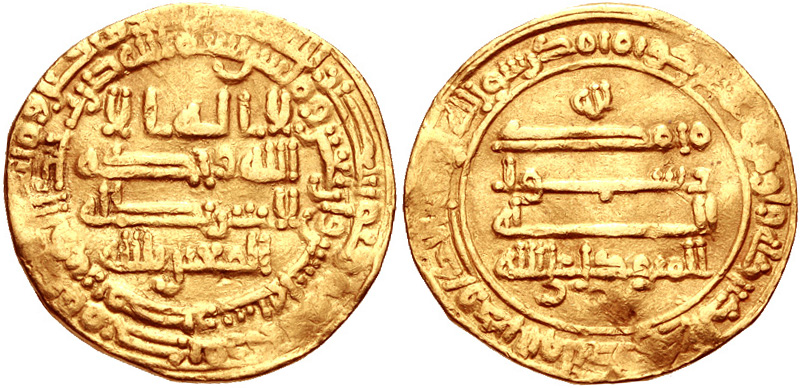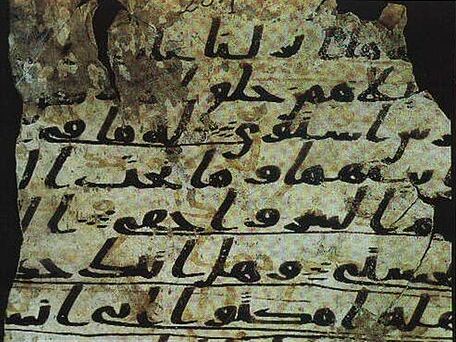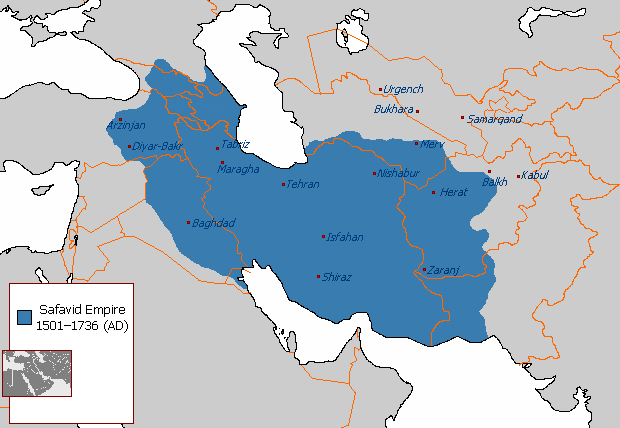|
Al-Mahdi Muhammad
Al-Mahdi Muhammad bin Ahmed (October 27, 1637 – August 2, 1718), also known as ''Ṣāḥib al-Mawāhib'', was an Imam of Yemen who ruled in 1689–1718. He belonged to the Qasimid family that was descended from the Islamic prophet Muhammad and dominated the Zaidi imamate in 1597–1962. Way to power Muhammad was the son of the imam al-Mahdi Ahmad. When the latter died in 1681, Muhammad was prevented from succeeding him. When the next imam al-Mu'ayyad Muhammad II died in 1686, a struggle for the imamate broke out between various contenders for a period of three years. Muhammad claimed the imamate in Mansura, but was besieged by opposing relatives. However, he managed to break the siege and capture the enemy leaders. He was now generally acknowledged by the various parts of the country. He is known under the name ''Ṣāḥib al-Mawāhib'' because he kept his residence in al-Mawahib east of Dhamar. Character Al-Mahdi Muhammad was known to Zaidi historiography as a ... [...More Info...] [...Related Items...] OR: [Wikipedia] [Google] [Baidu] |
Imam
Imam (; ar, إمام '; plural: ') is an Islamic leadership position. For Sunni Muslims, Imam is most commonly used as the title of a worship leader of a mosque. In this context, imams may lead Islamic worship services, lead prayers, serve as community leaders, and provide religious guidance. Thus for Sunnis, anyone can study the basic Islamic sciences and become an Imam. For most Shia Muslims, the Imams are absolute infallible leaders of the Islamic community after the Prophet. Shias consider the term to be only applicable to the members and descendents of the '' Ahl al-Bayt'', the family of the Islamic prophet Muhammad. In Twelver Shiasm there are 14 infallibles, 12 of which are Imams, the final being Imam Mahdi who will return at the end of times. The title was also used by the Zaidi Shia Imams of Yemen, who eventually founded the Mutawakkilite Kingdom of Yemen (1918–1970). Sunni imams Sunni Islam does not have imams in the same sense as the Shi'a, an importan ... [...More Info...] [...Related Items...] OR: [Wikipedia] [Google] [Baidu] |
Sayyid
''Sayyid'' (, ; ar, سيد ; ; meaning 'sir', 'Lord', 'Master'; Arabic plural: ; feminine: ; ) is a surname of people descending from the Prophets in Islam, Islamic prophet Muhammad through his grandsons, Hasan ibn Ali and Husayn ibn Ali, sons of Muhammad's daughter Fatimah, Fatima and his cousin and son-in-law Ali (Ali ibn Abi Talib). While in the Islamic golden age, early islamic period the title Al-Sayyid was applied on all the members of the of Banu Hashim, banu hashim, the tribe of Muhammad. But later on the title was made specific to those of Hasanids, Hasani and Hussaini descent, Primarily by the List of Fatimid caliphs, Fatimid Caliphs. Female ''sayyids'' are given the titles ''sayyida'', ''syeda'', ''alawiyah'' . In some regions of the Islamic world, such as in Iraq, the descendants of Muhammad are given the title ''Emir, amīr'' or ''mīr'', meaning "aristocrats", "commander", or "ruler". In Shia Islam the son of a non Sayyid father and a Sayyida mother claim ... [...More Info...] [...Related Items...] OR: [Wikipedia] [Google] [Baidu] |
Al-Mutawakkil Al-Qasim
Abū al-Faḍl Jaʿfar ibn Muḥammad al-Muʿtaṣim bi-ʾllāh ( ar, جعفر بن محمد المعتصم بالله; March 822 – 11 December 861), better known by his regnal name Al-Mutawakkil ʿalā Allāh (, "He who relies on God") was the tenth Abbasid caliph. He succeeded his brother, al-Wathiq, and is known for expanding the empire to its maximum extent. He was deeply religious, and is remembered for discarding the Muʿtazila, ending the Mihna (a period of persecution of Islamic scholars), and releasing Ahmad ibn Hanbal. He is also known for his tough rule, especially with respect to non-Muslim subjects. He was assassinated on 11 December 861 by the Turkic guard with the support of his son, al-Muntasir, marking the beginning of the period of civil strife known as the "Anarchy at Samarra". Early life Al-Mutawakkil was born on February/March 822 to the Abbasid prince Abu Ishaq Muhammad (the future al-Mu'tasim) and a slave concubine from Khwarazm called Shuja. His ... [...More Info...] [...Related Items...] OR: [Wikipedia] [Google] [Baidu] |
Friday Prayer
In Islam, Friday prayer or Congregational prayer ( ar, صَلَاة ٱلْجُمُعَة, ') is a prayer ('' ṣalāt'') that Muslims hold every Friday, after noon instead of the Zuhr prayer. Muslims ordinarily pray five times each day according to the sun's sky path regardless of time zones. ''Jumu’ah'' means Friday in the Arabic language. In many Muslim countries, the weekend is inclusive of Fridays, while in others, Fridays are half-days for schools and some workplaces. Meaning It is one of the most exalted Islamic rituals and one of its confirmed obligatory acts. Obligation There is consensus among Muslims regarding the Friday prayer (''salat al-jum‘ah'') being ''wajib'' - required - in accordance with the Quranic verse, as well as the many traditions narrated both by Shi’i and Sunni sources. According to the majority of Sunni schools and some Shiite jurists, Friday prayer is a religious obligation, but their differences were based on whether its obligation is condit ... [...More Info...] [...Related Items...] OR: [Wikipedia] [Google] [Baidu] |
Sana'a
Sanaa ( ar, صَنْعَاء, ' , Yemeni Arabic: ; Old South Arabian: 𐩮𐩬𐩲𐩥 ''Ṣnʿw''), also spelled Sana'a or Sana, is the capital and largest city in Yemen and the centre of Sanaa Governorate. The city is not part of the Governorate, but forms the separate administrative district of "ʾAmānat al-ʿĀṣima" (). Under the Yemeni constitution, Sanaa is the capital of the country, although the seat of the Yemeni government moved to Aden, the former capital of South Yemen in the aftermath of the Houthi occupation. Aden was declared as the temporary capital by President Abdrabbuh Mansur Hadi in March 2015. At an elevation of , Sanaa is one of the highest capital cities in the world and is next to the Sarawat Mountains of Jabal An-Nabi Shu'ayb and Jabal Tiyal, considered to be the highest mountains in the country and amongst the highest in the region. Sanaa has a population of approximately 3,937,500 (2012), making it Yemen's largest city. As of 2020, the greater ... [...More Info...] [...Related Items...] OR: [Wikipedia] [Google] [Baidu] |
Da'wah
Dawah ( ar, دعوة, lit=invitation, ) is the act of inviting or calling people to embrace Islam. The plural is ''da‘wāt'' (دَعْوات) or ''da‘awāt'' (دَعَوات). Etymology The English term ''Dawah'' derives from the Arabic word , which comes from the root variously meaning 'to invite' or 'to pray'. ''Da‘wah'' literally means "issuing a summons" or "making an invitation". Grammatically, the word represents a gerund of a verb with the triconsonantal root ''d-ʕ-w'' meaning variously "to summon" or "to invite". A Muslim who practices ''da‘wah'', either as a religious worker or in a volunteer community effort, is called a ' (, plural ' ). A ''dā‘ī'', is a person who invites people to understand and accept Islam through dialogue and other techniques, may be regarded as a missionary inviting people to the faith, prayer and manner of Islamic life. The term ''da'wah'' has other senses in the Qur'an. In ''sura'' (chapter) 30:25, for example, it denotes th ... [...More Info...] [...Related Items...] OR: [Wikipedia] [Google] [Baidu] |
Al-Mansur Al-Husayn
Al-Mansur al-Husayn (1669–1720) was an Imam over parts of Yemen, who ruled in rivalry with other competitors in 1716–1720. He belonged to the Qasimid family who dominated the Zaidi imamate of Yemen in 1597–1962. Al-Husayn bin al-Qasim was a grandson of the imam al-Mu'ayyad Muhammad I (d. 1644). He took advantage of popular discontent with the current imam al-Mahdi Muhammad. He claimed the imamate in the strong fortification Shaharah in 1716, taking the name al-Mansur. A large part of the country quickly fell away from the unpopular al-Mahdi Muhammad. The old imam released his nephew al-Qasim from prison and sent him to deal with the pretender. However, al-Mansur al-Husayn defeated his opponent at As Sudah. Al-Qasim soon defected from his uncle, acknowledged al-Mansur al-Husayn, and besieged the old imam. Al-Mahdi Muhammad had to give up and sue for a truce. Al-Mansur al-Husayn began to strike coins in his own name. However, already in the same year 1716 a-Qasim ... [...More Info...] [...Related Items...] OR: [Wikipedia] [Google] [Baidu] |
Jeddah
Jeddah ( ), also spelled Jedda, Jiddah or Jidda ( ; ar, , Jidda, ), is a city in the Hejaz region of the Kingdom of Saudi Arabia (KSA) and the country's commercial center. Established in the 6th century BC as a fishing village, Jeddah's prominence grew in 647 when the Caliph Osman made it a major port for Indian Ocean trade routes, channelling goods to Mecca, and to serve Muslim travelers for Islamic pilgrimage. Since those times, Jeddah has served as the gateway for millions of pilgrims who have arrived in Saudi Arabia, traditionally by sea and recently by air. With a population of about 4,697,000 people as of 2021, Jeddah is the largest city in Makkah Province, the largest city in Hejaz, the second-largest city in the Saudi Arabia (after the capital Riyadh), and the ninth-largest in the Middle East. It also serves as the administrative centre of the OIC. Jeddah Islamic Port, on the Red Sea, is the thirty-sixth largest seaport in the world and the second-largest and s ... [...More Info...] [...Related Items...] OR: [Wikipedia] [Google] [Baidu] |
Pasha
Pasha, Pacha or Paşa ( ota, پاشا; tr, paşa; sq, Pashë; ar, باشا), in older works sometimes anglicized as bashaw, was a higher rank in the Ottoman Empire, Ottoman political and military system, typically granted to governors, generals, dignitary, dignitaries, and others. As an honorific, honorary title, ''Pasha'', in one of its various ranks, is similar to a British Peerage of the United Kingdom, peerage or knighthood, and was also one of the highest titles in the 20th-century Kingdom of Egypt. The title was also used in Morocco in the 20th century, where it denoted a regional official or governor of a district. Etymology The English word "pasha" comes from Turkish language, Turkish ('; also ()). The Oxford Dictionaries (website), Oxford Dictionaries attributes the origin of the English borrowing to the mid-17th century. The etymology of the Turkish word itself has been a matter of debate. Contrary to titles like emir (''amīr'') and bey (''beg''), which were es ... [...More Info...] [...Related Items...] OR: [Wikipedia] [Google] [Baidu] |
Ottoman Empire
The Ottoman Empire, * ; is an archaic version. The definite article forms and were synonymous * and el, Оθωμανική Αυτοκρατορία, Othōmanikē Avtokratoria, label=none * info page on book at Martin Luther University) // CITED: p. 36 (PDF p. 38/338) also known as the Turkish Empire, was an empire that controlled much of Southeast Europe, Western Asia, and Northern Africa between the 14th and early 20th centuries. It was founded at the end of the 13th century in northwestern Anatolia in the town of Söğüt (modern-day Bilecik Province) by the Turkoman tribal leader Osman I. After 1354, the Ottomans crossed into Europe and, with the conquest of the Balkans, the Ottoman beylik was transformed into a transcontinental empire. The Ottomans ended the Byzantine Empire with the conquest of Constantinople in 1453 by Mehmed the Conqueror. Under the reign of Suleiman the Magnificent, the Ottoman Empire marked the peak of its power and prosperity, as well a ... [...More Info...] [...Related Items...] OR: [Wikipedia] [Google] [Baidu] |
Persia
Iran, officially the Islamic Republic of Iran, and also called Persia, is a country located in Western Asia. It is bordered by Iraq and Turkey to the west, by Azerbaijan and Armenia to the northwest, by the Caspian Sea and Turkmenistan to the north, by Afghanistan and Pakistan to the east, and by the Gulf of Oman and the Persian Gulf to the south. It covers an area of , making it the 17th-largest country. Iran has a population of 86 million, making it the 17th-most populous country in the world, and the second-largest in the Middle East. Its largest cities, in descending order, are the capital Tehran, Mashhad, Isfahan, Karaj, Shiraz, and Tabriz. The country is home to one of the world's oldest civilizations, beginning with the formation of the Elamite kingdoms in the fourth millennium BC. It was first unified by the Medes, an ancient Iranian people, in the seventh century BC, and reached its territorial height in the sixth century BC, when Cyrus the Great fou ... [...More Info...] [...Related Items...] OR: [Wikipedia] [Google] [Baidu] |
Abbas II Of Persia
Abbas II (; born Soltan Mohammad Mirza; 30 August 1632 – 26 October 1666) was the seventh Shah of Safavid Iran, ruling from 1642 to 1666. As the eldest son of Safi and his Circassian wife, Anna Khanum, he inherited the throne when he was nine, and had to rely on a regency led by Saru Taqi, the erstwhile grand vizier of his father, to govern in his place. During the regency, Abbas received formal kingly education that until then, he had been denied. In 1645, at age fifteen, he was able to remove Saru Taqi from power, and after purging the bureaucracy ranks, asserted his authority over his court and began his absolute rule. Abbas II's reign was marked by peacefulness and progression. He intentionally avoided a war with the Ottoman Empire, and his relations with the Uzbeks in the east were friendly. He enhanced his reputation as a military commander by leading his army during the war with the Mughal Empire, and successfully recovering the city of Kandahar. On his behest, Ros ... [...More Info...] [...Related Items...] OR: [Wikipedia] [Google] [Baidu] |







